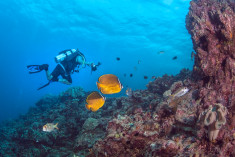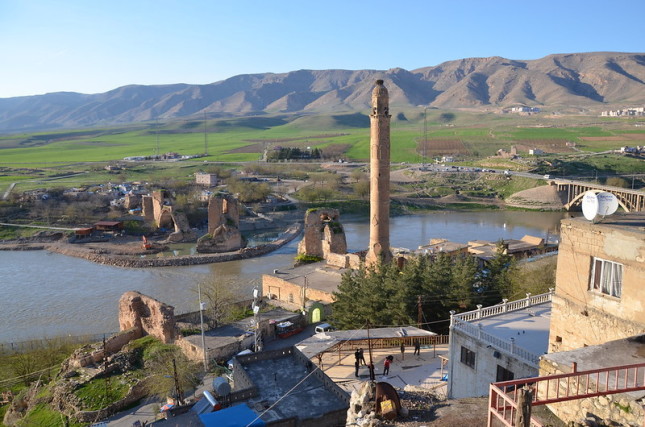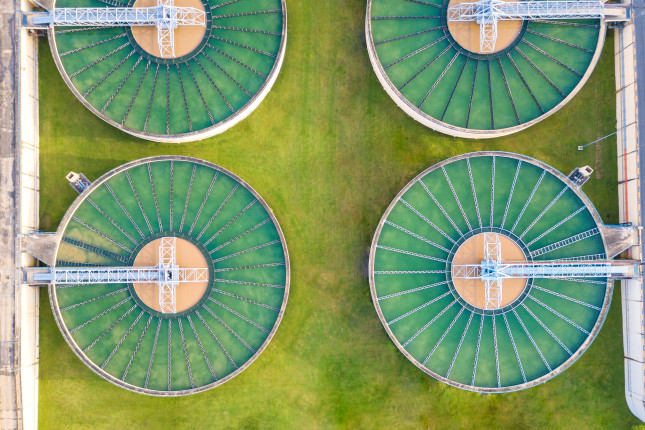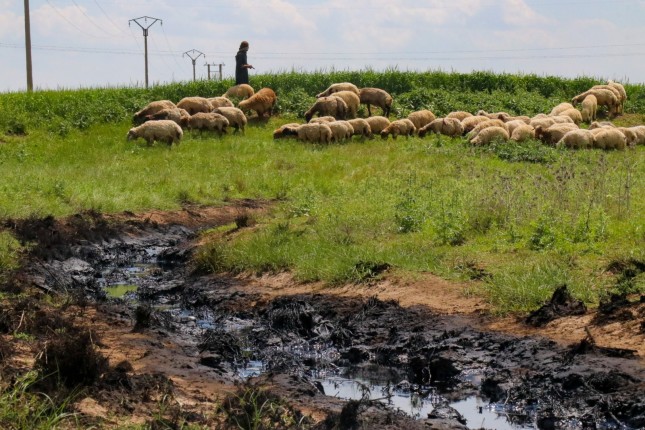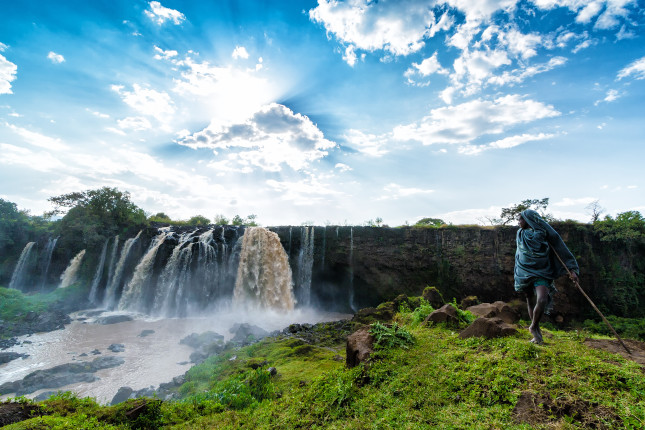-
The Environmental Collateral Damage of the South China Sea Conflict
›
Tensions in the South China Sea increased last April when a Chinese coast guard ship sank a Vietnamese fishing boat near the Paracel Islands—a fiercely disputed territory in the South China Sea. Disputes over island territories in the region have endured for decades, with China, Vietnam, the Philippines, Taiwan, Indonesia, Malaysia, and Brunei all making overlapping territorial claims. The region is rich in natural resources and biodiversity, holding vast fish stocks and an estimated 11 billion barrels of oil and 190 cubic feet of natural gas.
-
Agriculture’s Achilles’ Heel: Water Insecurity Is the Greatest Threat to Sustaining Global Food Production
›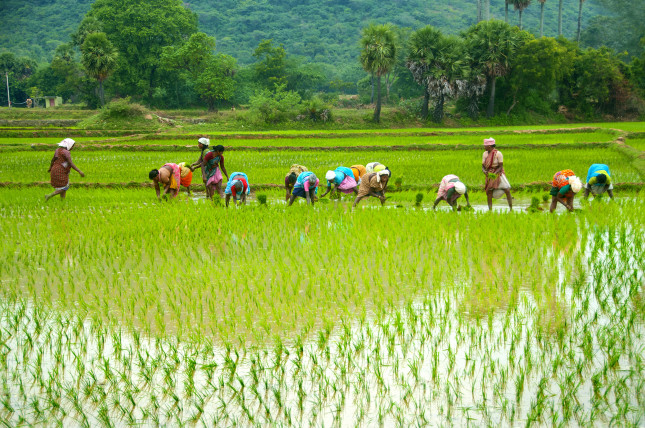
Simply put, without water there is no food. Global food and nutritional security require resilient agricultural systems, which, in turn, depend on reliable and sustainable supplies of freshwater, whether from rainfall or irrigation. It is an often-neglected dependency, and one that threatens to undermine our ability to meet our future food needs and maintain the ecosystems upon which all life depends.
-
Equitable, Effective Climate Resilience Requires Cultural Intelligence
›
By the end of 2020, Turkey’s long awaited Ilisu dam project will be complete. Turkey argues this new dam will bring power independence and shore up economic stability. As an added bonus, it ensures water resiliency in a water-scarce region. Meanwhile, environmentalists bemoan habitat destruction, and Iraqis worry about water shortages they will experience down river. For the Kurds, the Ilisu dam project wipes out thousands of years of culture. For them, it’s the latest in a methodical cultural extermination which has been their plight since the founding of the Republic of Turkey.
-
The Top 5 Posts of August 2020
›
As Beijing prepares to host the 2022 Winter Olympics, China’s environmental activities are once again on center stage. The Wilson Center’s China Environment Forum took the top spot this month with Karen Mancl and Richard Liu’s coverage of the new program report, “Closing the Loop on China’s Water Pollution,” which details what China can learn from New York, Washington, D.C., and Singapore, to advance its wastewater and carbon reduction targets.
-
Turning off the Tap: Plastic Sachets and Producer Responsibility in Southeast Asia
›
In the crowded capital city of Manila, the Philippines, one quarter of the population of 15 million people has less than one dollar to spend per day. Residents depend upon the tiny and ubiquitous convenience stores, known as sari-sari stores, for daily essentials like food and hygiene products, much of which are sold in convenient single-use sachets (small plastic pouches) for just a few cents each. These sari-sari stores are the major source of the 150 million sachets used daily in the Philippines.
-
Where the Oil Runs Deep, Water Turns Foul
›
When Farhad Ahma returned to his native country last year on a work trip, his first thought was of his small daughter back home. The air around him was so thick with pollution, he couldn’t imagine she would survive the climate in this region of northeastern Syria. Ahma himself struggled to breathe almost as soon as he arrived, nauseated by the heavy smell within a couple hours. He was born and raised nearby, in a city called Qamishli, but he had lived in Berlin for some time now. Returning was a shock to his system.
-
Tensions Surrounding the Grand Ethiopian Renaissance Dam: A Wilson Center NOW Interview with Aaron Salzberg
›
Dams can be a double-edged sword, said Aaron Salzberg, a Wilson Center Global Fellow, Director of the Water Institute at the University of North Carolina, and former Special Coordinator for Water Resources for the U.S. Department of State. He spoke in a recent episode of Wilson NOW about the Grand Ethiopian Renaissance Dam, which will become Africa’s largest hydroelectric dam, once it’s fully operational.
-
Unlikely Heroes: We Neglect Water and Sanitation Service Providers at Our Own Peril
›
Six months into the World Health Organization (WHO) declaration of COVID-19 as a global pandemic, many countries, including the United States, are still struggling to contain the spread of the virus which, as of this writing, has taken 744,649 lives globally. Before mask-wearing was recommended as the simplest and most effective defense against contagion, epidemiologists and public health experts recommended regular handwashing with soap and practicing social distancing as fundamental to curbing the spread of the COVID-19 virus. Briefly it appeared as if WASH (water, sanitation, and hygiene) services were actually being accorded the importance they deserved. The critical need for water for handwashing, the millions who lack regular supplies of both water and soap, and the difficulties of social distancing in settlements where thousands share a single toilet with no soap were finally headline news.
Showing posts from category water.


